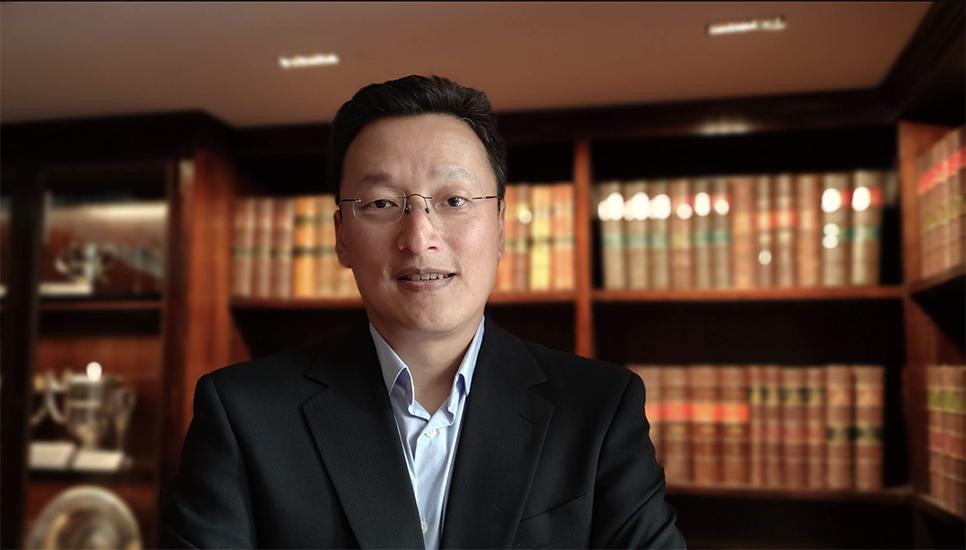The primary care partnership bringing equitable healthcare to all

For the past 15 years, Modality, an award-winning GP super-partnership which operates primary health care and community services across England, has witnessed incredible growth – and has plans for much more!
Partner and CEO Vincent Sai has been part of the journey from the start. With extensive experience and leadership in the healthcare industry, particularly in primary care and population health management, he is, along with his team, committed to advancing the delivery of healthcare services in the United Kingdom.
Ahead of speaking at the 34th MedTech Investing Europe Forum in London on July 2-3. For more information, Vincent Sai talks about Modality’s origins, aims and future plans…

What is Modality?
We are a NHS GP super partnership. We were founded in 2009 and this year is our 15th anniversary. We started out as just two practices coming together to figure out what working at scale meant.
Today, we have around 500,000 patients across ten regions in England. We also provide outpatient services working with hospitals and reach up to seven million citizens in England. While Modality has grown, we are, at the heart of it, still a general practice.
As you say, Modality has reached more than seven million UK citizens, can you talk about the challenges of achieving such large-scale transformations within the healthcare field?
I think the secret to our success is finding like-minded leaders who wanted to be part of this journey. Our mission is to future proof general practice and continue to innovate and preserve the best parts of it.
There are no shortage of challenges, but the key is having the right people rallying around and solving those challenges. Seeing the growth that we’d had, starting out with 25,000 patients and growing up to 50,000, then on to 100,000 and now 500,000, we’ve had to adjust the approach and infrastructure that you need to serve that growing population. You have to invest and work out different processes and protocols at each of those inflection points.
The next job will be one million patients and I think we will successfully traverse this further step with proper investment in infrastructure by having the right leadership around us.

As a partner at the 34th MedTech Investing Europe Forum, how important is this kind of cutting-edge innovation in helping solve the problems Modality and, by extension, the NHS faces?
I'm very old school in the way I look at businesses and opportunities. I believe technology is here to serve us, not the other way around.
I think it's very important that investors and operators look very carefully at whether the technology that is being presented is really solving a problem and if it is proportionate.
Forums like this are important for people to share, to talk and to see what's out there through a community of knowledge sharing.
How do you foresee the MedTech landscape evolving over the next ten years?
I think there's going to be a lot of effort to get health systems on a more sustainable footing. We have had the privilege of visiting many countries to appear on different expert panels and we’ve seen how everyone is grasping their own challenges, from workforce to the prevalence of various diseases.
We need to look beyond the tech and see what is really needed. We need to have a stronger understanding of the health needs of the populations that we serve and how that's morphing and evolving.
In more developed countries, we have obviously been facing the aging population cliff. So, how are we prepared for that? I think the interplay between health and society in general will be blurred more and more, because it's no longer just about health care, there's also social care to consider.
There are many other determinants of health, that isn't necessarily health specific, that I think we need to get smarter on. The ability to process data in a more sophisticated manner is of increasing importance. The responsibility of healthcare leaders is to learn how to use data more effectively and to improve the personalisation of care for people.
Over the coming decade, the utilisation of wearables will, I think, become more mainstream and there will be a lot more sophistication and tools around diagnostics in the context of the primary and community services sector. Now, having said that, I also believe that everything has to be proportionate. Tech is not for everybody and, of course, we must not forget populations that may be left behind in this tech boom. We shouldn't disadvantage people who are either not tech savvy or do not have the access to the tech. I think everything needs to be balanced so that we can ensure we are serving the populations the best we can and in the most equitable way possible.







